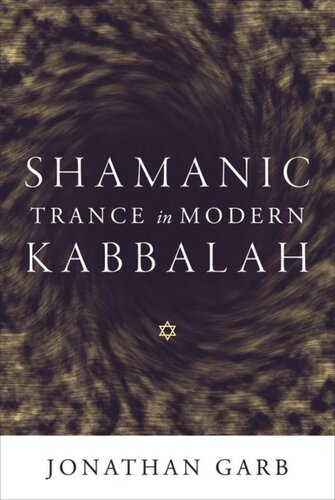

Most ebook files are in PDF format, so you can easily read them using various software such as Foxit Reader or directly on the Google Chrome browser.
Some ebook files are released by publishers in other formats such as .awz, .mobi, .epub, .fb2, etc. You may need to install specific software to read these formats on mobile/PC, such as Calibre.
Please read the tutorial at this link: https://ebookbell.com/faq
We offer FREE conversion to the popular formats you request; however, this may take some time. Therefore, right after payment, please email us, and we will try to provide the service as quickly as possible.
For some exceptional file formats or broken links (if any), please refrain from opening any disputes. Instead, email us first, and we will try to assist within a maximum of 6 hours.
EbookBell Team

4.1
10 reviewsBringing to light a hidden chapter in the history of modern Judaism, Shamanic Trance in Modern Kabbalah explores the shamanic dimensions of Jewish mysticism. Jonathan Garb integrates methods and models from the social sciences, comparative religion, and Jewish studies to offer a fresh view of the early modern kabbalists and their social and psychological contexts.
Through close readings of numerous texts—some translated here for the first time—Garb draws a more complete picture of the kabbalists than previous depictions, revealing them to be as concerned with deeper states of consciousness as they were with study and ritual. Garb discovers that they developed physical and mental methods to induce trance states, visions of heavenly mountains, and transformations into animals or bodies of light. To gain a deeper understanding of the kabbalists’ shamanic practices, Garb compares their experiences with those of mystics from other traditions as well as with those recorded by psychologists such as Milton Erickson and Carl Jung. Finally, Garb examines the kabbalists’ relations with the wider Jewish community, uncovering the role of kabbalistic shamanism in the renewal of Jewish tradition as it contended with modernity.